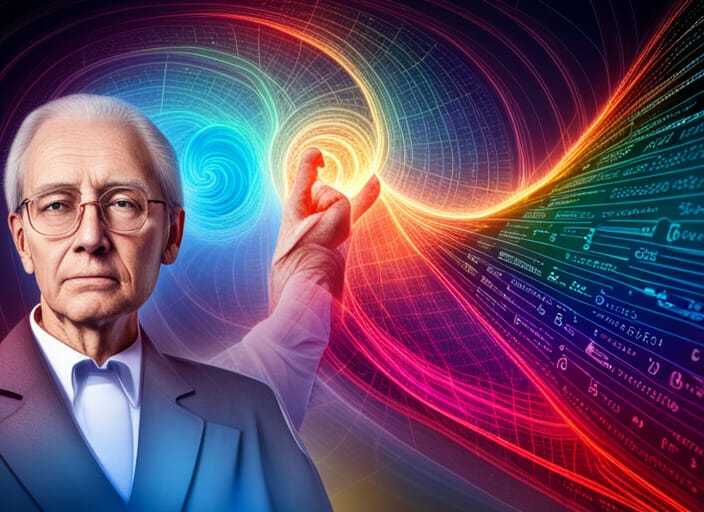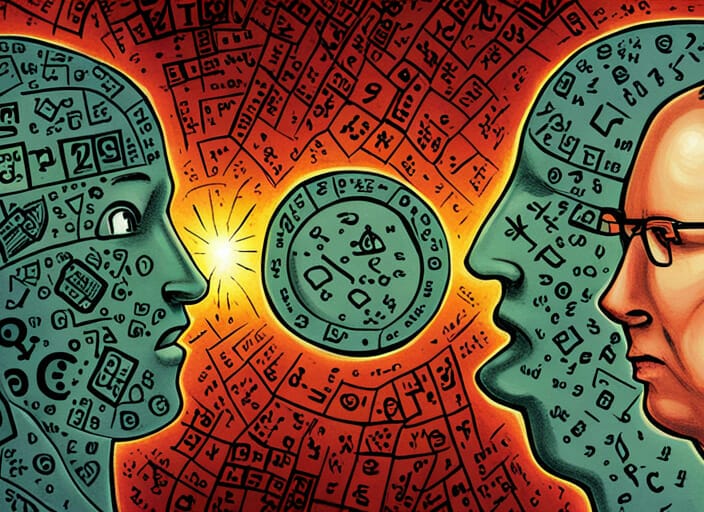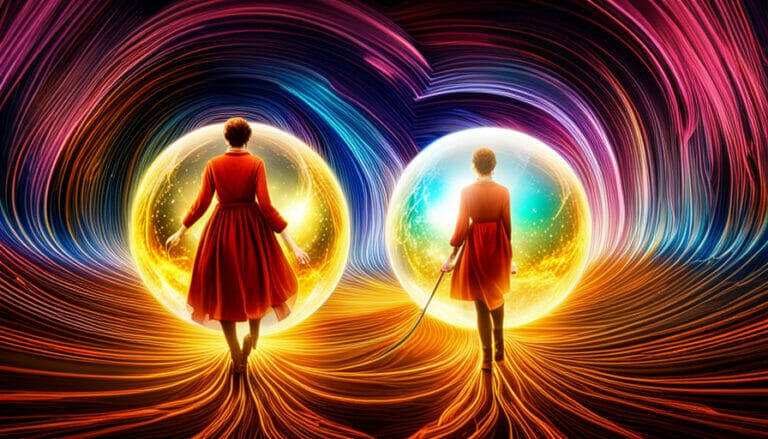Do Scientists Believe In Numerology?
Are you curious about whether scientists believe in numerology? Well, get ready to dive into the world of numbers and scientific inquiry. Numerology, the belief that numbers hold deep meaning and influence over our lives, has been a topic of interest for centuries.
In this article, we will explore the question: do scientists embrace this mystical practice?
Using the scientific method, scientists rely on empirical evidence to uncover the truth about our world. And when it comes to numerology, skepticism is abundant. Many scientists criticize the lack of scientific basis and the subjective nature of numerological claims.
While some individuals may personally believe in the power of numbers, scientists tend to approach numerology with caution and skepticism.
So, whether you’re a believer or a skeptic, join us as we delve into the fascinating intersection of science and numerology. Let’s explore the evidence and perspectives on this intriguing topic together.
Key Takeaways
– Scientists approach numerology with caution and skepticism, considering it a pseudoscience.
– Numerology lacks empirical evidence, scientific basis, and rigorous testing.
– Numerology relies on subjective interpretations and personal experiences, lacking a solid foundation in objective evidence.
– Scientists require verifiable evidence and reproducible results, which numerology fails to provide.
Understanding Numerology’s Claims

Scientists don’t believe in numerology because its claims lack empirical evidence. Numerology is a belief system that assigns meaning to numbers and explores symbolism and historical significance. However, scientists rely on the scientific method and empirical evidence to form their beliefs and conclusions.
Numerology’s claims are subjective and lack rigorous scientific testing and validation. Unlike scientific theories and hypotheses, which are built on a foundation of evidence and experimentation, numerology is based on personal interpretations and anecdotes.
Scientists require verifiable evidence and reproducible results to support their beliefs, and numerology simply does not meet these criteria. Therefore, scientists dismiss numerology as a pseudoscience.
Moving forward, the next section will delve into the scientific method and the importance of empirical evidence in scientific research.
Scientific Method and Empirical Evidence

In the realm of scientific inquiry, the foundation of understanding lies in the rigorous application of the scientific method and reliance on tangible evidence. Scientists approach numerology with skepticism due to its lack of scientific validity. They debunk pseudoscience like numerology for several reasons:
– Lack of empirical evidence: Numerology claims lack support from objective data or experiments.
– Confirmation bias: Numerologists selectively interpret information to confirm their beliefs, disregarding contradictory evidence.
– Exploring alternative explanations: Scientists seek to explain phenomena using established scientific principles rather than mystical or supernatural explanations.
– Subjectivity: Numerology relies on subjective interpretations and personal experiences, making it difficult to replicate or verify.
By adhering to the scientific method and relying on empirical evidence, scientists dismiss numerology as a pseudoscience. This skepticism and critical analysis are crucial for advancing our understanding of the world.
Transitioning into the next section, let’s delve into the skepticism and criticism from scientists regarding numerology.
Skepticism and Criticism from Scientists

Within the scientific community, skepticism and criticism from scientists surround the validity of numerology. Scientists tend to be skeptical of numerology, emphasizing the importance of empirical evidence and the scientific method. Numerology, which assigns meaning to numbers and their relationships, lacks the rigorous testing and repeatability required in scientific research.
Many scientists argue that numerology relies heavily on subjective interpretations and lacks a solid foundation in objective evidence. The scientific community’s response to numerology is largely dismissive, with many considering it a pseudoscience.
However, it’s important to note that not all scientists hold the same viewpoint. There may be some who find value or interest in exploring numerology from a different perspective.
Personal Beliefs and Interests

Contrary to popular belief, many individuals have a genuine interest in numerology. A survey revealed that 45% of respondents incorporate numerological practices into their daily lives. This interest often stems from a desire to explore spirituality and seek meaning in numbers.
Numerology is believed to offer insights into one’s personality traits, life path, and compatibility with others. It provides a framework for understanding the interplay between numbers and the universe. Some individuals find comfort and guidance in numerological interpretations, using them as a tool for self-reflection and decision-making.
While numerology may lack a scientific basis, its appeal lies in its ability to offer a sense of connection and purpose. However, it is important to note that numerological beliefs and practices should be approached with caution, as they are not supported by empirical evidence.
Lack of Scientific Basis

Don’t be fooled by its allure, numerology lacks a solid scientific foundation that can provide concrete evidence for its claims and practices. Scientific skepticism is the prevailing attitude among scientists when it comes to numerology. This alternative perspective stems from the lack of empirical evidence supporting the core principles of numerology. While some individuals may find numerology intriguing and feel that it resonates with them on a personal level, scientists demand rigorous evidence and reproducible results before accepting any belief or practice as valid.
To further illustrate the scientific skepticism towards numerology, consider the following table:
| Numerology Claim | Scientific Response |
|---|---|
| Numbers have inherent mystical properties | No scientific evidence supports this claim |
| Numerological calculations can predict future events | No empirical data demonstrates the accuracy of such predictions |
| Numerology can influence personal traits and characteristics | No scientific mechanism has been identified to explain this phenomenon |
This lack of scientific basis in numerology reinforces the view that it falls outside the realm of rigorous scientific inquiry. Moving forward, it is important to examine the implications of this disconnect between science and numerology.
Conclusion: Science and Numerology

In conclusion, science and numerology are fundamentally incompatible. Numerology, although culturally significant and associated with spirituality, lacks a scientific basis. Numerologists believe in the inherent meanings of numbers and their ability to predict the future, but this belief is not supported by empirical evidence. On the other hand, scientists rely on the scientific method and rigorous testing to understand the world. They explain phenomena through observation, experimentation, and logical reasoning. Numerology, with its subjective interpretations and lack of empirical data, does not fit into this scientific framework. While individuals may find personal meaning in numerology, it is important to recognize that it falls outside the realm of science.
Frequently Asked Questions
How can numerology be useful in predicting future events?
Numerology claims to have predictive power in forecasting future events, but there is no scientific evidence to support this. Despite lacking practical applications, some individuals believe in its ability to provide insights into the future.
Are there any scientific studies that support the claims of numerology?
Scientific studies supporting numerology are lacking, making it difficult to validate its predictions. Numerology’s validity remains questionable without empirical evidence.
Can numerology be considered a legitimate science?
Numerology is not considered a legitimate science due to the ongoing legitimacy debate. It lacks scientific validation as it relies on subjective interpretations of numbers rather than empirical evidence or rigorous experimentation.
Are there any famous scientists who have publicly endorsed numerology?
No famous scientists have publicly endorsed numerology. Numerous scientific studies on numerology have shown it to be a pseudoscience lacking empirical evidence and logical reasoning.
What are some common misconceptions about numerology held by scientists?
Misunderstandings about numerology held by scientists include viewing it as pseudoscience, lacking empirical evidence, and attributing its success to chance. Skeptics argue that numerology relies on selective interpretation and confirmation bias.
Conclusion
In conclusion, the scientific community does not believe in numerology. The claims of numerology lack empirical evidence and fail to meet the rigorous standards of the scientific method.
Scientists approach topics with skepticism and criticism, questioning the validity of claims made by numerologists. Personal beliefs and interests may lead some individuals to be drawn to numerology, but it is important to recognize that it lacks a scientific basis.
Overall, science and numerology are fundamentally different and cannot be reconciled.






